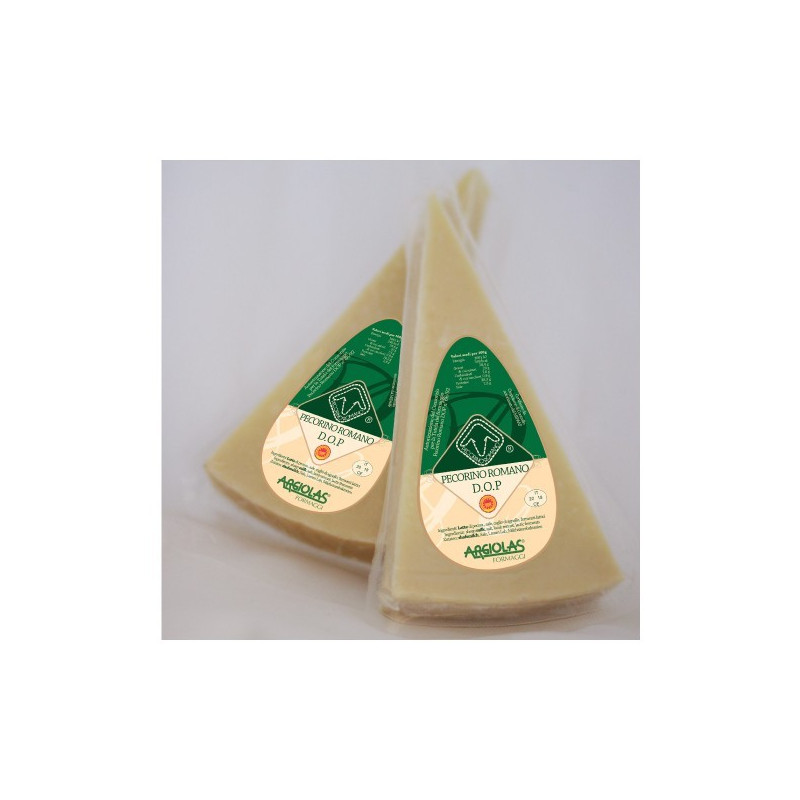
Reference: 0400806
Brand: Su Sirboni
Banner



Sardinian Pecorino cheese produced from carefully selected whole sheep's milk from chosen farms; produced by Argiolas Formaggi
Sheep's cheese, among the most renowned in Sardinia, among its ancestors, diary kinds dating back to before '700
Online sale of Sardinian food
 Politiche per la sicurezza
Politiche per la sicurezza
(modificale nel modulo Rassicurazioni cliente)
 Politiche per le spedizioni
Politiche per le spedizioni
(modificale nel modulo Rassicurazioni cliente)
 Politiche per i resi
Politiche per i resi
(modificale nel modulo Rassicurazioni cliente)
Sardinian pecorino cheese, the flagship of Argiolas Formaggi
Features:
Sardinian Pecorino cheese produced by carefully selected whole sheep's milk from chosen famrs; produced by Argiolas Formaggi
in Dolianova
Pecorino Romano made from carefully selected whole sheep's milk from selected farms; produced by Argiolas Formaggi
Pecorino Romano is an ancient cheese, a native of the Roman Campagna. The first news about products like sheep milk cheese with this cheese date back to the Roman period: Varro, Hippocrates and Pliny the Elder speak in detail of the ancient cheese-making techniques that, compared with modern ones, do not show substantial differences. With regard to Sardinia, the origins of this product date back to the late nineteenth century. In fact, given the small size of their herds, merchants dairy Lazio began to produce the Pecorino Romano in Sardinia just from that period. Being a PDO cheese, the production area of Pecorino Romano is established in the product specification. It is limited to areas of the Lazio, region of Sardinia and the province of Grosseto, in Tuscany.
Pecorino Romano is an hard or semi-hard cheese , produced exclusively with whole fresh sheep's milk, and is typically industrial, so its production is currently equipped dairies. At this point we add the sheet-graft, natural culture of lactic acid bacteria, and the rennet paste lamb. The coagulation takes place in about 30-40 minutes and, once the curd has reached the optimum consistency, we proceed with the rupture of the same, made with the lire, of which the polyvalent are equipped, until the granules reach the size of a grain of wheat. always kept in constant agitation, it is to questopunto heated to a maximum temperature of 45-48 ° C. After this step, the curd is discharged into a tub of drainage and pressed to facilitate the purging of the serum and make it compact. The dough is divided into blocks, put into molds, they are passed in warm, damp places, to order to encourage acidification and bedding pasta. The next day we proceed to the cheese marking matrix provided by the consortium of protection.
Pecorino Romano is a cheese that stands out at first sight for its characteristic cylindrical shape with flat sides and the considerable weight that varies between 20 and 35 kg. The crust is thin, ivory or natural straw, taolra capped with suitable protective; the paste has a compact design and the color varies from white to pale straw. The taste is aromatic and slightly spicy for the table cheese, savory and spicy for the stagioanto.
Serve with:
The ideal companion of this type of Sardinian cheese would be the malloreddus and tomato sauce, culurgiones or ravioli meat
Reference: 0400806
Brand: Su Sirboni
Reference: 200401
Brand: Gabbas
Reference: 300204
Brand: Cantina Lilliu
Reference: MF0000003
Brand: Murgia Formaggi
Reference: 402213
Brand: Argiolas Formaggi
Reference: 101406
Brand: Su Pranu
Reference: 201004
Brand: Sa Marchesa
Reference: CAO0000019
Brand: Cao Formaggi
Reference: 402205
Brand: Argiolas Formaggi
Reference: 202407
Brand: Inke
Reference: 104701
Brand: Sepi
Reference: 101501
Brand: Giampaolo Piu
Reference: 601501
Brand: Gavinuccio Turra
Reference: 201804
Brand: MacFormaggi
Reference: 108801
Brand: Nuova Sarda Industria Casearia Srl
Reference: CAO0000011
Brand: Cao Formaggi
Reference: 200008
Brand: Inke
Reference: 1047145
Brand: Sepi
Reference: 201803
Brand: MacFormaggi
Your review appreciation cannot be sent
Report comment
Report sent
Your report cannot be sent
Write your review
Review sent
Your review cannot be sent

Sardinian Pecorino cheese produced from carefully selected whole sheep's milk from chosen farms; produced by Argiolas Formaggi
Sheep's cheese, among the most renowned in Sardinia, among its ancestors, diary kinds dating back to before '700
Online sale of Sardinian food